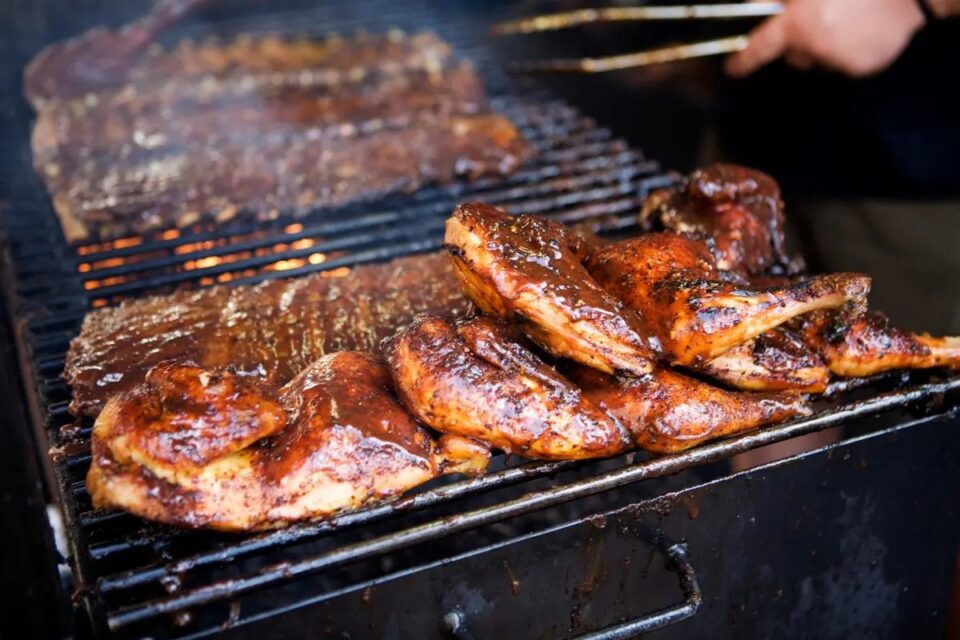A Trend That Sizzles. BBQ disciples are developing into full-fledged addicts and taking their passion to new, purely culinary heights, enrolling in BBQ courses chock-full of techniques that they claim will help any lazy homemade griller to be turned into a king of flames.
The Appeal of BBQ Courses
- Expanding Culinary Skills: Learners establish a high level of control over the grill. Instructors emphasise grilling techniques that produce accurate outcomes.
- Exploring Diverse Flavors: Recipes are all part of the BBQ courses. While enjoying the barbeque courses, one’s mouth waters as their tongue detects flavours left vividly on the taste buds.
Why Take a BBQ Course?
- Professional Guidance: Experience chefs unveil some of their valuable tricks of the trade to help students discover how to sidestep some common errors.
- Hands-on Learning: BBQ classes allow the trainer to give these students immediate feedback as they carry out the class instruction. In certain skills such as driving, if a trainer tries to provide instructions after the action has been carried out, the person attempting the skill will often retain poor habits that were introduced early on.
- Community and Camaraderie: Such classes can create friendship amongst the participants, and many forge bonds between one another through a mutual appreciation of good BBQ.
The Course Structure
- Beginning with Basics: Unfortunately, courses usually begin with basic techniques. Instructors always make sure new students are familiar with basic safety procedures when grilling.
- Advanced Techniques: More complicated skills might be added as the class continues: smoking meats, say, or conjuring homemade marinades.
- Real-time Feedback: The students get immediate feedback about their progress grilling. A barbecue master needs to take the grilling technique.
The Benefits of Learning BBQ
- Enhanced Cooking Repertoire: Graduates of these courses tend to cook more at home and host better parties.
- Savings on Dining Out: Since you can grill high quality food, it’s beneficial eating at home. Therefore, a lot of savings can be made in the long run.
Challenges and Considerations
- Time Commitment: BBQ courses require a commitment of time. Prospective students should consider this before enrolling.
- Cost: There’s a price to pay for such courses. But the skills you learn make the cost worthwhile.
Choosing the Right Course
- Research is Key: When you are intending to apply your mind, you should continue enquiring into the proper objects of attention of a course. A student seeking an ideal teacher should be well-read, open-minded, and devoted to learning. In an ideal scenario, they would have already read an author’s works and would like to learn more. When you do indeed commit to a course sought, my advice is to investigate your preferred form of courseware. Ponder the content, and the teacher’s talents.
- Check Reviews: If you do read reviews from people who have taken the course previously, it should be helpful, as often they comment on what they liked or disliked about the course in question.
Looking to the Future
- Continued Learning: The majority of people who finish a BBQ course continue to learn. As a matter of fact, they know the ins and outs of new techniques and current trends in the barbecue world.
- Spreading the Joy of Grilling: Graduates then share these skills with friends and family or open up their own restaurant. BBQ culture expands as a result.
The Joy of Grilling: A Lifelong Journey
Walking away with an armadillo burger and a grilled pork chop is just the beginning of your corso BBQ experience. The real takeaway of taking a barbecue class is that when you understand the style, you’ve adopted a set of skills that can dazzle at any barbecue – and, if you can find someone to share it with, you’ve also learned about hospitality. More importantly, though, the tradition will likely reinvent itself. It will continue to grow and expand, pulling people into its orbit, with or without a ‘c’.

